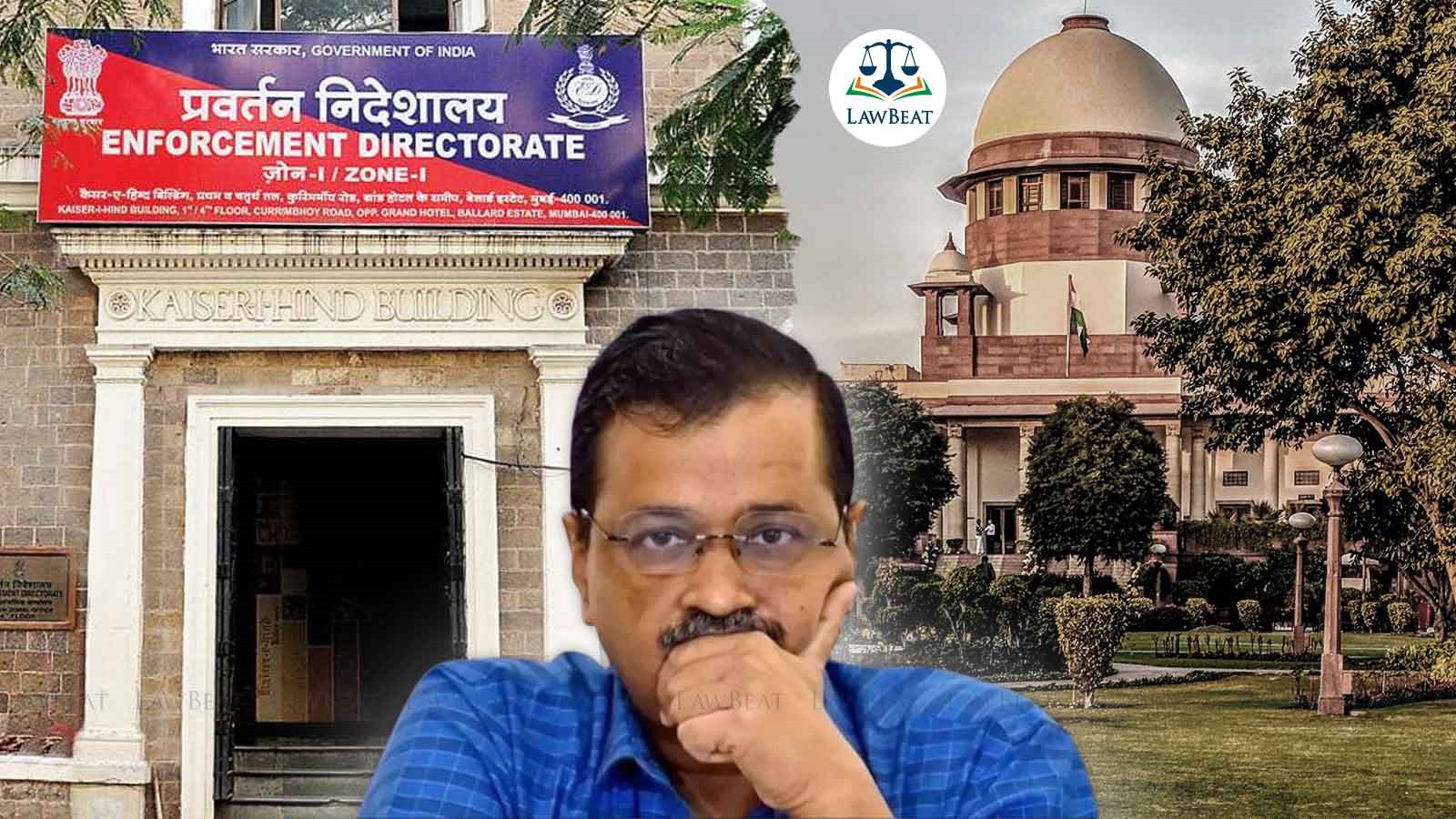Kejriwal intrinsically involved in entire conspiracy of liquor scam, avoided interrogation and destroyed evidence: ED tells Supreme Court

ED has further argued that that there are no special provisions under the PMLA that differentiate the arrest of a chief minister from an ordinary citizen.
The Enforcement Directorate (ED) has filed its response to the plea by Delhi Chief Minister Arvind Kejriwal's challenging the Delhi High Court's dismissal of his petition contesting his arrest by the ED in the liquor policy scam.
A bench of Justices Sanjiv Khanna and Dipankar Datta had issued notice in said plea on April 15 and will now be hearing the matter on April 29.
In its affidavit ED has submitted that there has been a large-scale destruction of evidence in the entire scam with over 170 mobile phones being destroyed during the entire scam by Kejriwal and others.
"...crucial digital evidences of the Scam and money trail have been actively destroyed by the accused and other persons involved in this scam. Despite such active and criminal destruction of evidence, the agency has been able to recover key evidences which directly reveals the role of the petitioner in process and activities relating to proceeds of crime...", the reply adds.
ED had added that treating a politician like Kejriwal differently from an ordinary criminal in a matter of arrest would amount to arbitrary
and irrational exercise of power of arrest which would violate the principle of equality enshrined under Article 14 of the Constitution.
The reply stresses that the decision to arrest Kejriwal was based on substantial evidence and legal grounds and not to disable Kejriwal from campaigning for his party during the Lok Sabha poll.
"The accused Arvind Kejriwal was avoiding interrogation by not remaining present before the investigating officer despite being summoned 9 times. Even on the date of the search during his interrogation while recording his statement under section 17 of the
PMLA he was avoiding answering questions by being evasive...", the agency has submitted.
While denying any relief to the Delhi Chief Minister, the High Court had prima facie opined that 'Kejriwal played an active role in concealing'. Furthermore, the court emphasized ED's investigation that suggested Kejriwal’s involvement in both his individual capacity and in his role as the national convener of AAP.
In response to Kejriwal's accusations of questioning the legitimacy and accuracy of the approver's testimonies, the bench of Justice Swarana Kanta Sharma asserted that 'doubting or casting aspersions on the statements of an approver is tantamount to undermining the integrity of the judicial process itself'.
Kejriwal was arrested on March 21 late evening. He has been in ED's custody since. ED had conducted searches at Delhi Chief Minister's residence following the Delhi High Court's decision to deny him protection from coercive action in an excise policy-related money laundering case.
The case against Kejriwal & allies involves allegations of corruption and money laundering in the formulation and execution of Delhi's excise policy for 2021-22, which was later scrapped.
Meanwhile, upon arrest, outside Kejriwal's residence, a crowd gathered, including AAP MLAs and party leaders, protesting the ED's actions. AAP leaders criticized the BJP and ED, alleging political conspiracy and misuse of power to target Kejriwal.
Case Title: ARVIND KEJRIWAL vs. DIRECTORATE OF ENFORCEMENT
